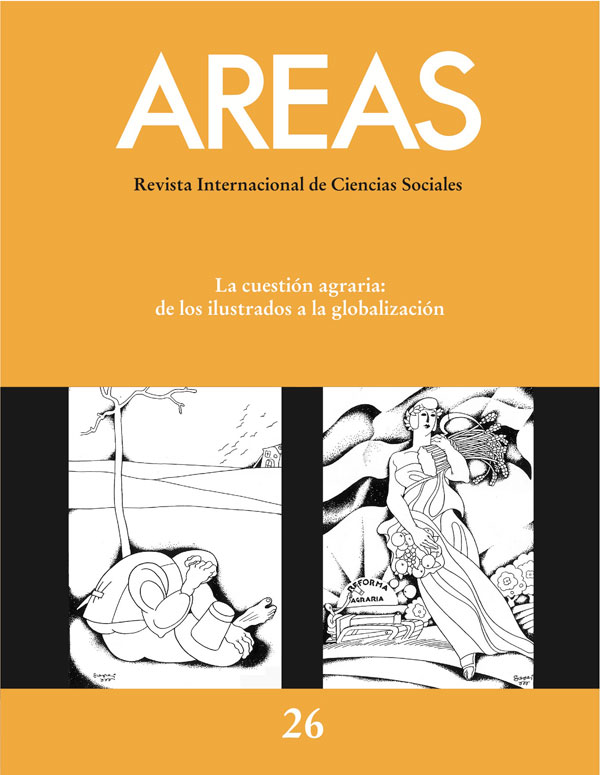From agronomy to agricultural engineering: The reform of Spanish agriculture and rural society, 1855-1931
Abstract
Between 1766 and 1855 the agronomy, both as a discipline and as a style of thinking developed in other European countries, were introduced in Spain. At the same time a concrete model of engineering, clearly related to the French one but with its own traits, became institutionalized. The convergence of these two processes led to the birth in 1855 of the profession of “agricultural engineer”, a profession that considered its main task transforming Spanish agriculture and rural society, through the spread of technology, as the basis of agriculture understood as business. The impact of engineers upon the rural reality in the 19th century was limited. They achieved, however, their recognition by the public opinion as the technicians of agriculture. This social role gave them a wide audience in the 20th century, when the “agrarian question” turned them into political actors. In this context, the reformism of engineers became more plural, coexisting among them diverse projects, that included structural reforms of diverse orientation, even though all of them compatible with their deeply rooted “productivist” vision of agriculture.Downloads
Download data is not yet available.
Metrics
Views/Downloads
-
Abstract1141
-
PDF (Español (España))472
Pan-Montojo, J. (2007). From agronomy to agricultural engineering: The reform of Spanish agriculture and rural society, 1855-1931. Areas. International Social Science Journal, (26), 75–93. Retrieved from https://revistas.um.es/areas/article/view/118521
Artículos
The published works by this Journal are subject to the following terms:
1. The Publication Service of the University of Murcia (the Editor) owns the copyright of its publications. It promotes and allows its use under the indicated licence in Section 2.
© Servicio de Publicaciones, Universidad de Murcia, 2011
2. Papers are digitally published under the licence Creative Commons Reconocimiento-NoComercial-SinObraDerivada 3.0 España (legal text). They can be copied, used, disseminated, transferred and publically presented if: i) the author is quoted, as well as the original source of publication (Journal, editorial and URL); ii) they are not used for commercial purposes; iii) the licence of use is mentioned.
3. Auto-file Conditions. It is allowed and authors are encouraged to digitally disseminate their pre-print versions (versions prior to review) and/or post-print (reviewed version accepted for its publication) since it promotes its early diffusion and the corresponding increase of quotes and scope within the academic community. RoMEO Colour: green.


